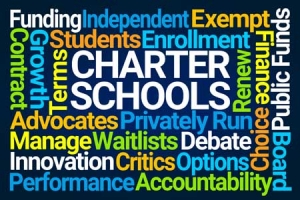By Greg Childress June 4, 2021 In Education
NC POLICY WATCH
The rocky relationship between the firm that manages the lone school in the state’s Innovative School District and the State Board of Education (SBE) has apparently ended.
SBE Chairman Eric Davis on Thursday announced a legal settlement in a contract dissolution between the board and Achievement for All Children (AAC). The board hired AAC to manage low-performing Southside-Ashpole Elementary School in Rowland in 2018.
Davis’ announcement came during a state board meeting.
“As required, I’m announcing a negotiated settlement in the legal dispute over the termination of the Achievement for All Children’s management of Southside-Ashpole Elementary School in the amount of $3,761.24,” Davis said.
Davis provided no explanation for the settlement, and board members didn’t ask questions. The agenda item did not include supporting documents.
Policy Watch has requested a copy of the settlement.
A year ago, Policy Watch obtained a confidential letter that alleged AAC had failed to meet its contractual obligations in running Southside-Ashpole.
The letter cited numerous instances in which AAC allegedly failed to meet deadlines for contractually-mandated reports. The firm reportedly failed to submit a proposed budget due May 1 and an annual financial audit that was due Oct. 15, 2019. Nor, says the letter, did AAC submit a compliance report for the district’s Exceptional Children’s Program or make requested corrections to COVID-19 staff work logs.
Dated May 5, 2020, the unsigned letter was “Prepared at the Direction of Counsel for the Provision of Legal Advice.” It was addressed to Davis and the board and recommended that state education officials terminate the contract with AAC three years early.
Former State Rep. Tricia Cotham, a Democrat from Charlotte, who served in the state legislature from March 2007 to January 2017, is president of AAC, a nonprofit corporation.
Cotham has not returned calls from Policy Watch, despite receiving tens of thousands of dollars in public money though the now-terminated state contract.
The state legislature created the ISD in 2016 to allow private operators to take control of consistently low-performing public schools. The education model has been controversial — both in North Carolina and in other states.
Critics contend such districts lack transparency and that it’s more difficult to monitor them because public money and decision-making authority are transferred to operators that are not directly accountable to taxpayers.
Davis raised questions about whether AAC was equipped to meet its obligations three years ago when he was the board’s vice chairman. He and several other board members were concerned that AAC did not have enough experience turning around low-performing schools and working with at-risk children.
“I think (students) deserve better,” Davis was reported saying at the time. “They deserve an operator with a demonstrated track record.”



